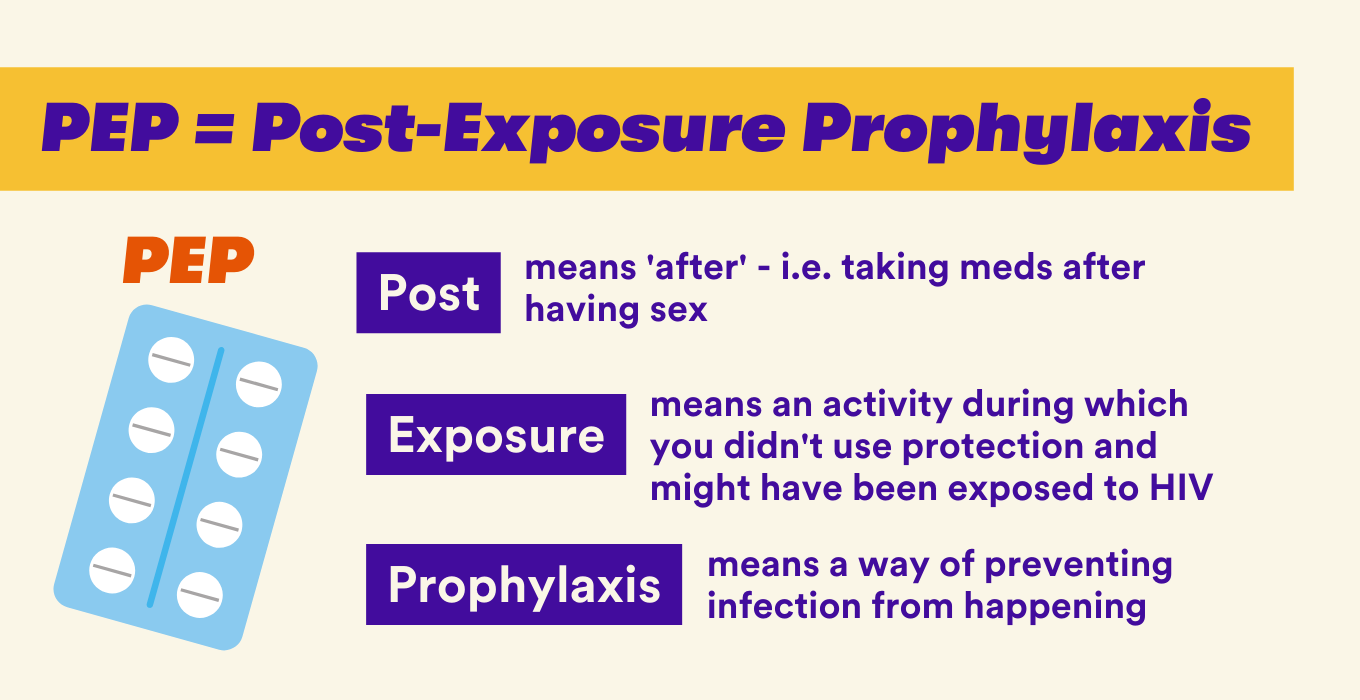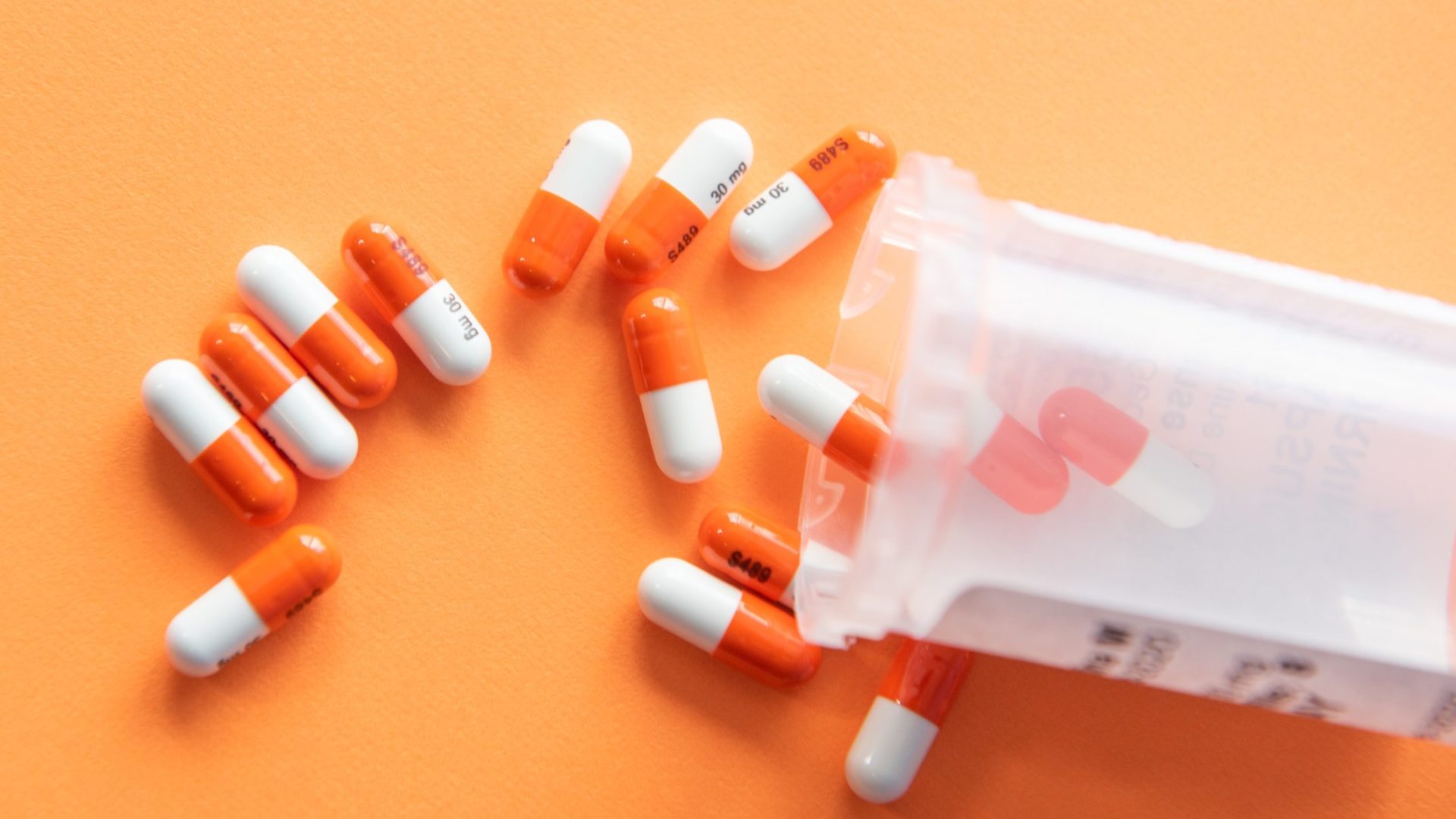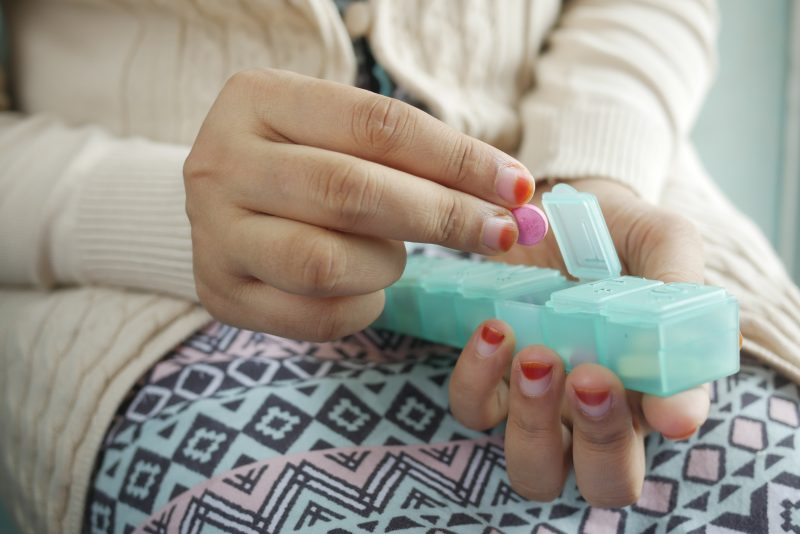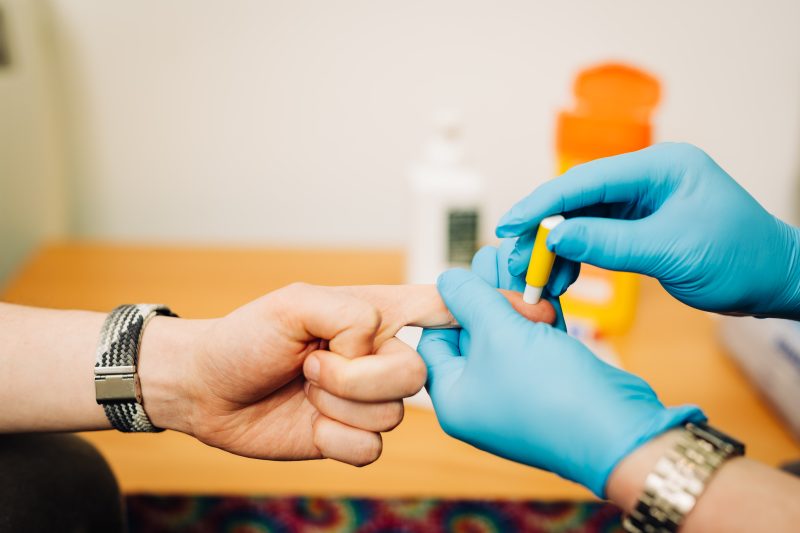PEP is a medication that you can take if you had sex without a condom with someone who might have HIV. For PEP to be effective, it must be taken within 72 hours after a possible exposure.
Key things to know
PEP can vastly reduce your risk of acquiring HIV if taken correctly and within 72 hours.
- PEP is delivered as a four-week course of tablets.
- You can get PEP at most sexual health clinics and in hospitals (usually in the A&E department) if you meet the criteria.
- PEP is free via the NHS.
- The sooner you start the course of treatment after exposure, the more effective it is.
If you find using condoms during sex difficult, check out our information on PrEP or get in touch with us for advice and support.
Get in touch
What is PEP?

PEP is a treatment that contains three different anti-HIV drugs. The course of tablets lasts 4 weeks. It’s important not to miss any doses and to take the tablets as prescribed.
Taking PEP after a possible exposure to HIV can stop it from developing in your body. However, PEP is not 100% effective and shouldn’t be used as a substitute for condoms. Having unprotected sex while taking PEP could let more HIV into your body, making PEP much less effective. If you have taken PEP in the past and are HIV negative, you are still at risk of HIV infection in the future and can access PrEP.
Is PEP for me?
When you request PEP from a sexual health clinic or A&E, the clinician will be able to advise if PEP is right for you based on your circumstances.
You might be asked what kind of sex you had and some details about your partner(s) to assess their HIV risk.
- You will have to do an HIV test in case you already have HIV.
- If you had sex with someone living with HIV who receives treatment and has an undetectable viral load you won’t need PEP as HIV can’t be passed on by someone with an undetectable viral load.
How do I take PEP?
Ideally, you should start PEP within the first 24 hours after exposure to HIV, though PEP is usually effective when started within 72 hours.
- PEP needs to be taken for 4 weeks.
- You should take the tablets regularly to make sure the level of PEP in your blood is consistent.
- If you’ve missed a dose, tell your doctor straight away.
- Some over-the-counter and prescription medication cannot be taken at the same time as PEP. Tell your doctor if you take any other medication or vitamin supplements (including those bought in the pharmacy).
- Do not take recreational drugs while taking PEP as it can cause some serious side effects.
Does PEP have any side effects?
Like all medications, PEP drugs can cause some side effects. You may experience nausea, diarrhoea, headaches and tiredness, among other effects. Your doctor will be able to discuss these with you prior to prescribing PEP. You may also need to have some blood tests taken during the course of treatment to monitor its effects on your body.
What if?
If you think you might have been exposed to HIV more than 72 hours ago, PEP is unlikely to be effective. You will need to have an HIV test to confirm if you have HIV.
Check out our information on testing for HIV and testing windows. You can also use our service finder to find HIV testing near you or get in touch with us for advice and support.
Just remember, even if you have HIV, it is not the end – treatments for HIV are very effective and mean that you can live a long and healthy life.
If you have a positive HIV test, PEP will not be suitable for you, and you will be offered HIV treatment instead.
HIV treatment is very effective, and if you start it early, it can reduce the amount of HIV in your body and prevent damage to your immune system.
You can also protect your sexual partners by taking HIV treatment and maintaining an undetectable viral load.
You can find more useful information on our recently diagnosed with HIV page.
No. Sex without a condom while taking PEP could let more HIV into your body, making PEP much less effective.
Also, having sex without a condom while you are taking PEP carries a potential risk of exposing you or your partner(s) to HIV and other STIs.
If you find it difficult to use a condom during sex, you can check out our information on PrEP.
Looking for support?
If you are living with HIV and need support understanding a new diagnosis, treatment or navigating life with HIV, we are here to help. Get in touch with us by filling out our contact form.




